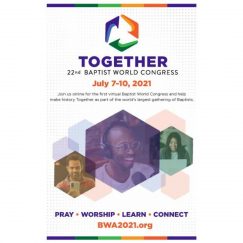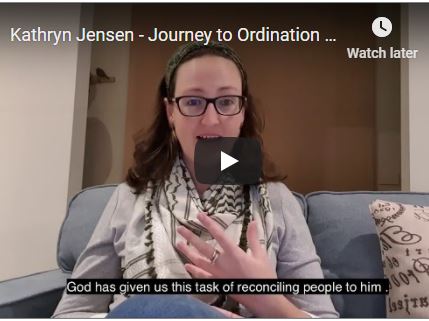2nd November 2020
Flourishing Spirituality Devotion Part 5: Silence and Solitude

Flourishing Spirituality Devotions Part 5
Spiritual Rhythms – Silence and Solitude
by Dr. Lynn Moresi, Lecturer Pastoral Theology, Whitley College
There is a line in a song by Pink that says “I don’t wanna be the girl who has to fill the silence. The quiet scares me cause it screams the truth.”[1] Silence can do that. Silence has the ability to open us up to places of truth and honesty that provoke and confront us in ways that sometimes feel uncomfortable and raw. However, silence can also be the womb of promise that incubates new seeds of hope, sparks fresh perspectives of joy, and opens optimistic future horizons. That’s because silence is the language of the Spirit, or as Thomas Merton suggests, silence is the place where God’s very presence dwells.[2]
When Elijah needed encouragement from God, he went to a place of solitude and waited.[3] God did not appear to Elijah in the explosion of wind and earthquake and fire, but in the “sound of sheer silence.”[4] When Jesus needed guidance before choosing the twelve, he “went to a mountainside to pray”[5] and after ministering late into the night, and seeing incredible miracles take place, Mark tells us that “very early in the morning, while it was still dark, Jesus got up, left the house and went off to a solitary place, where he prayed.”[6] Jesus knew the value of silence and solitude. He withdrew from the crowds in order to be quiet and still before God.[7] Solitude and silence connected Jesus with the Father and enabled Spirit to touch his heart beneath the expectations, demands, and celebrity of his daily life. In silence, God infused truth, peace, groundedness and unconditional acceptance into the depth of Jesus being. In silence, Jesus’ heart was stilled and he knew God in deep and intimate communion.[8]
I wonder, however, how often we intentionally set aside time for silence? Do we, as Christ-followers, actually follow our namesake in this practice? Professor Gordon Smith suggests that many of us unfortunately “live such harried lives that there is little time for reflection and silence, and consequently little time to attend to the quiet presence of God and the promptings of the Spirit”[9] He further cautions, “God cannot be rushed. A sense of hurry or panic undermines our ability to recognize his voice. Our deadlines and timetables are often artificial and often need to be set aside so that we can attend to God, allowing God to speak to us in his time and according to his timetable.”[10]
The intentional practice of silence and solitude is a much-needed antidote to the materialistic, noise-filled world in which we live. Carving out time to quiet the constant din around us and to simply sit in the stillness of silent meditation can be a balm to our harried souls. We breathe in. We breathe out. “[Our] soul waits in silence for God only.”[11]
Discussion Questions:
- What is your own experience of silence and solitude?
- Does my schedule, my time, my life look like that of a person who wants to hear the gentle whisper of God’s still small voice?
- Is there a balance in my life between periods of public exposure and times of silence, solitude & hiddenness?
- What practical steps could I make towards integrating times of silence and solitude into my everyday life?
Blessings,
Lynn
[1] Pink, “Sober” from the Album “Funhouse”: Sony/ATV Music Publishing LLC, Kobalt Music Publishing Ltd., BMG Rights Management, Reservoir Media Management Inc, Spirit Music Group, 2008.
[2] Merton, Thomas, The Climate of Monastic Prayer, Minnesota: Liturgical Press, 2018, ebook n.p.
[3] 1 Kings 19:11-13
[4] 1 Kings 19:13 NRSV
[5] Luke 6:12
[6] Mark 1:35
[7] Luke 5:16
[8] Psalm 46:10
[9] Smith, Gordon, Listening to God in Times of Choice: The Art of Discerning God’s Will, Downers Grove: IVP, 1997, p76
[10] Ibid., p146
[11] Psalm 62:5 NASB
Previous Devotions:
Part 1: Flourishing Spirituality At the Centre
Part 2: Praise and Worship
Part 3: Prayer and Fasting
Part 4: Bible Reading and Study










